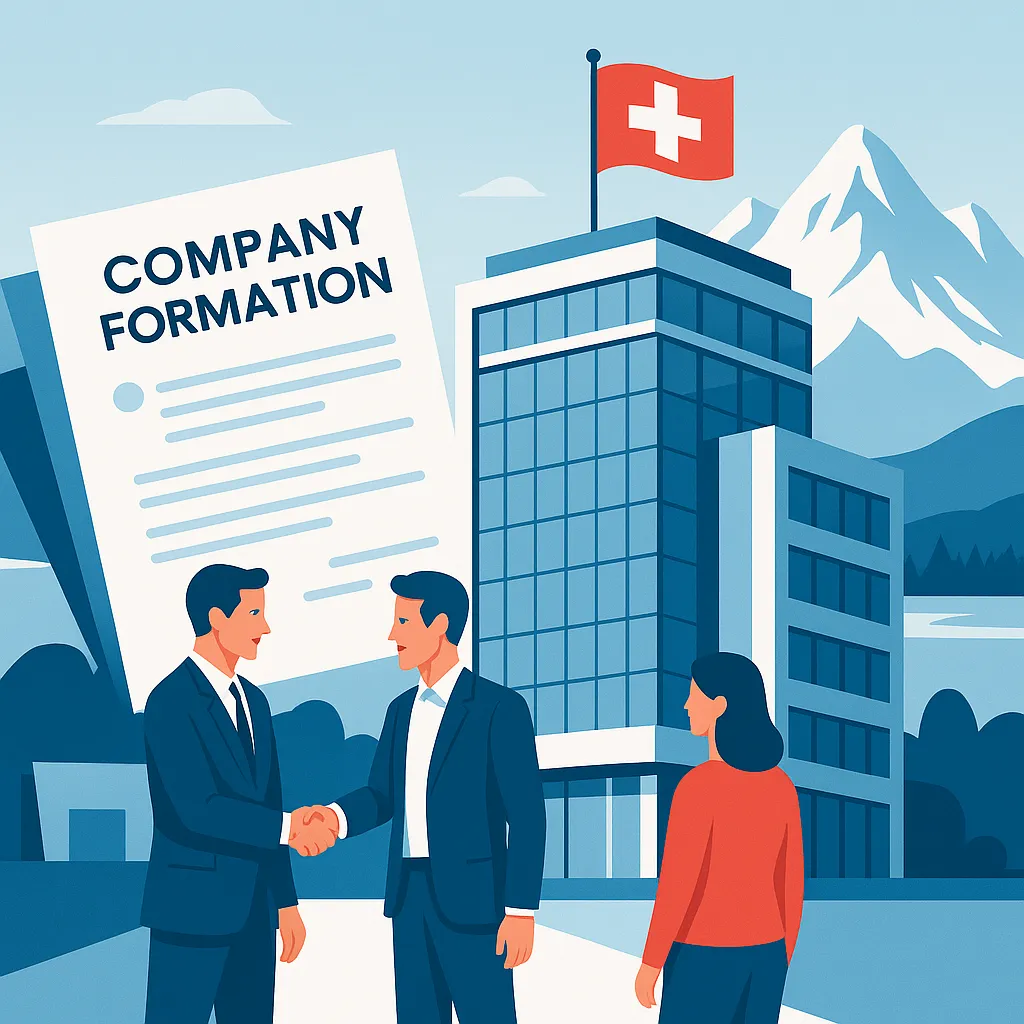 Switzerland Company Formation in Front of a Business Building in Switzerland
Switzerland Company Formation in Front of a Business Building in SwitzerlandCompany Formation Switzerland: Why Entrepreneurs Choose to Register a Business in Switzerland
Thinking about company formation in Switzerland? You’re not alone. With its unique mix of political stability, pro-business taxation, and international prestige, Switzerland is one of the most attractive countries in Europe for launching a business.
Federal corporate tax is just 8.5%, and combined cantonal rates can be as low as 11% in Zug or around 21% in Geneva, making Swiss company registration highly competitive. But starting a business in Switzerland offers much more than tax benefits.
A Swiss business address signals trust, quality, and global credibility—helping new companies attract investors and customers quickly. Entrepreneurs also benefit from Switzerland’s world-class infrastructure, multilingual workforce from top universities like ETH Zurich and EPFL, and a central European location that allows access to the EU market while avoiding its bureaucracy.
Whether you choose a GmbH (Sàrl) or an AG (SA), the Swiss legal framework supports business growth, asset protection, and long-term success. That’s why Switzerland company formation consistently ranks among the best globally, year after year.
✅ Download the Ultimate Guide to Company Formation in Switzerland
Ready to dive deeper into the details of how to start a business in Switzerland?
Preview the most important steps, then get our complete Ultimate Guide (PDF) covering:
Choosing between a Swiss GmbH or AG
How to register your company step-by-step
Opening a bank account and depositing capital
Swiss tax planning tips and VAT requirements
Legal compliance and governance best practices
Common mistakes to avoid when registering a company in Switzerland
👉 Enter your email below to access the full guide instantly.
Perfect for entrepreneurs, consultants, and foreign investors seeking to register a company in Switzerland in 2025.

